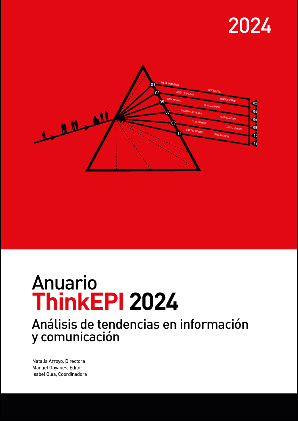Open access, an unfinished business
DOI:
https://doi.org/10.3145/thinkepi.2024.e18a07Keywords:
Open Access, Repositories, Preprints, Aneca, Sexenios, DORA, CoARAAbstract
Open access and repositories are crucial aspects for the dissemination of scientific results. Despite the advances of all these years, there are challenges to a full implementation of the open model that have been evidenced in the recent call for sexenios 2023 in Spain, where the requirement to deposit publications in open access was added. This scenario has increased the demand for guidance in libraries by the community, revealing at the same time ignorance and errors in the deposit. This note aims firstly to emphasize the importance of repositories, especially institutional repositories, to ensure the preservation and maximize the availability of scientific publications. Secondly, it offers guidelines for an effective implementation of open access, highlighting the choice of repositories, attention to editorial policies, and the proper management of metadata. In light of these new requirements, we face a unique opportunity to strengthen research and contribute to open access, provided it is done correctly.Downloads
References
Aneca (2023a). “Aneca se adhiere a Dora y a CoARA”. Aneca. Noticias, 3 abril. https://www.aneca.es/-/aneca-se-adhiere-a-la-san-francisco-declaration-on-research-assessment-dora-y-a-la-coalition-for-advancing-research-assessment-coara-
Aneca (2023b). “Aprobados los criterios de evaluación de la próxima convocatoria 2023 del sexenio de investigación”. Aneca. Noticias, 5 de diciembre. https://www.aneca.es/web/guest/-/aprobados-los-criterios-de-evaluaci%C3%B3n-de-la-pr%C3%B3xima-convocatoria-2023-del-sexenio-de-investigaci%C3%B3n
España (2011). “Ley 14/2011, de 1 de junio, de la ciencia, la tecnología y la innovación”. Boletín oficial del Estado, n. 131, 2 junio. https://www.boe.es/eli/es/l/2011/06/01/14
España (2022). “Ley 17/2022, de 5 de septiembre, por la que se modifica la Ley 14/2011, de 1 de junio, de la Ciencia, la Tecnología y la Innovación”. Boletín oficial del Estado, n. 214, 6 septiembre. https://www.boe.es/eli/es/l/2022/09/05/17
Harnad, Stevan (2010). “Gold open access publishing must not be allowed to retard the progress of green open access self-archiving”. Logos, v. 21, n. 3-4, pp. 86-93. https://doi.org/10.1163/095796511X559972
Huang, Chun-Kai; Neylon, Cameron; Montgomery, Lucy; Hosking, Richard; Diprose, James P.; Handcock, Rebeca N.; Wilson, Katie (2024). “Open access research outputs receive more diverse citations”. Scientometrics, v. 129, n. 2, pp. 825-845. https://doi.org/10.1007/s11192-023-04894-0
Johnson, Rob (2019). “From coalition to commons: Plan S and the future of scholarly communication”. Insights. The UKSG journal, v. 32, n. 5. https://doi.org/10.1629/uksg.453
Kim, Lanu; Portenoy, Jason H.; West, Jevin D.; Stovel, Katherine W. (2020). “Scientific journals still matter in the era of academic search engines and preprint archives”. Journal of the Association for Information Science and Technology, v. 71, n. 10, pp. 1218-1226. https://doi.org/10.1002/asi.24326
Laakso, Mikael; Matthias, Lisa; Jahn, Najko (2021). Open is not forever: A study of vanished open access journals. Journal of the Association for Information Science and Technology, v. 72, n. 9, pp. 1099-1112. https://doi.org/10.1002/asi.24460
Robinson-García, Nicolás; Jiménez-Contreras, Evaristo (2023). “Acceso Abierto: Utopías, realidades y cuentas pendientes”. Anuario ThinkEPI, v. 17. https://doi.org/10.3145/thinkepi.2023.e17a17
Swan, Alma; Brown, Sheridan (2004). “Authors and open access publishing”. Learned publishing, v. 17, n. 3, 219-224. https://doi.org/10.1087/095315104323159649
Torres-Salinas, Daniel; Robinson-García, Nicolás; Jiménez-Contreras, Evaristo (2023). “The bibliometric journey towards technological and social change: A review of current challenges and issues”. Profesional de la información, v. 32, n. 2, e320228. https://doi.org/10.3145/epi.2023.mar.28
Downloads
Published
How to Cite
Dimensions


